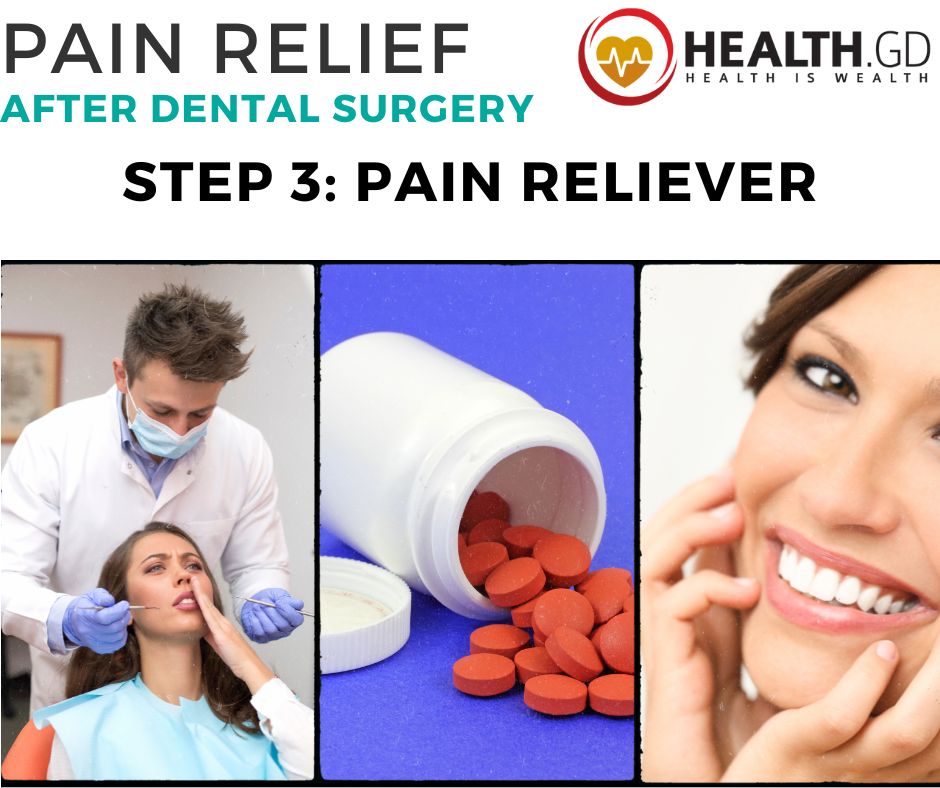Two things cross nearly every patient’s mind when faced with dental surgery — how expensive is the procedure, and will it hurt?
This post was written by Beth Rush exclusively for Health.gd

If you are reading the article, then you must be searching for Pain relief after Dental surgery. Of course, you should expect some level of discomfort no matter what type of oral surgery you’re undergoing. Even a minor procedure will likely cause aches or bleeding for a few days. Once you’re home and the local anesthesia wears off, you could find yourself desperate for anything to ease your initial recovery pain.
While it’s important to remember that whatever discomfort you feel will subside, there are a few things you can do to relieve unpleasant sensations in and around your mouth. This guide will help break down ways to provide the best pain relief after dental surgery.
Why So Many People Fear the Dentist
Few would say they look forward to undergoing surgery. A large population might also agree that a trip to the dentist is the last thing they’d ever get excited about.
Some people take their feelings toward surgery and dentists to an entirely different level. According to the Cleveland Clinic, 36% of American adults have dentophobia — fear of dentists — with 12% citing extreme cases.
There are several reasons why people are afraid of the dentist, including:
- Prior negative or traumatic visits
- Mouth and tooth pain
- Fear of needles or blood
- Sensitivity to drill sounds
- Unpleasant clinic smells
- Concerns about local anesthetic injections
In many instances, dental fears might result in patients forgoing the necessary treatments or procedures for their oral conditions. When dentists mention the need for surgery to correct a dental problem, you might begin to panic.
Of course, these feelings are normal, but you shouldn’t allow the fear of postoperative pain to scare you. Suppose you’re suffering from chronic tooth damage and misery from mouth soreness. A root canal, tooth implant, reconstructive surgery or extraction will likely provide all the relief you’ve been after.
Nowadays, dental surgeries are highly advanced procedures. An experienced oral surgeon will surely use the least invasive method to correct your dental condition with the most uncomplicated recovery.
3 Pain-Relieving Tips for After Dental Surgery
Fortunately, there are ways to prepare and make a recovery from dental surgery easier. These three tips can offer the best pain relief after dental surgery and promote faster healing.
1. Apply an Ice Pack

Ice packs have been an effective relief method for chronic pain for centuries. In addition to helping manage pulsating aches that might occur after dental procedures, ice helps to reduce inflammation and swelling around the gums and face.
In a study on cryotherapy, researchers found that ice applications at a temperature of – 5° Celsius — or 23° Fahrenheit — had ideal results for whole-body pain relief associated with degenerative conditions.
After dental surgery, wrap or hold an ice pack up to the side of your face for about 20 minutes. Then, remove it for 15 to 20 minutes — you can reapply the ice pack as many times as is needed if the pain and swelling are still unbearable.
Some people find it easier to use a plastic bag filled with crushed ice or frozen peas so that it molds to the area more easily. You should also sit up for the first two days to drain some of the pressure around your swollen face.
2. Eat Nutritious Foods

You might think eating is an impossible feat after dental surgery. How can you chew anything with post-op pain? It could be necessary to prepare food differently, depending on your procedure.
Some patients return to eating the same as before within a few days or a week after a procedure. Otherwise, normal chewing might resume in a couple of months or longer for more intensive surgeries.
Even if you don’t feel like eating, it’s important to have soft foods regularly after dental surgery. Certain foods contain essential vitamins and minerals that will help you along in the recovery process.
For instance, berries have high concentrations of antioxidants and anti-inflammatory properties to decrease swelling and improve gut health.
Meanwhile, deep, leafy greens contain B vitamins to improve circulation and even contract arteries and veins that trigger headaches.
Consider pureeing vegetables into a soup or blending berries, kale and spinach into a cold smoothie to ensure you get the necessary nutrients. Eggs are another soft food option to boost protein, while mashed potatoes or sweet potatoes will go down just as easily.
You could also choose to freeze fruit juices into homemade ice pops for additional cold therapy if ice packs work for you.
Always remember to stay hydrated following dental surgery. Drinking plenty of water will help flush out toxins and transport nutrients throughout the body. Water also helps relieve muscle soreness you might experience if you start your recovery in bed.
3. Take a Pain Reliever

Most patients can take the edge off their pain levels with an over-the-counter pain reliever containing extra-strength acetaminophen. Your oral surgeon might also prescribe a prescription-strength pain reliever pill for the first few days of recovery.
Remember to follow the directions carefully and avoid taking medication on an empty stomach. Also, don’t drive or operate machinery when taking pain medication or coming off anesthesia to prevent injury.
For those interested in more natural pain relief after dental surgery, there are several methods you can try, including vanilla extract or peppermint tea bags. Most providers also recommend a salt water rinse to relieve surgery pain.
All you need to make a warm saltwater rinse is a teaspoon of salt and 8 ounces of boiling water, allowing the salt to dissolve in the water as it cools before use. Saltwater rinses are good for relieving mouth sores, reducing plaque and freshening your breath.
Of course, always check with your oral surgeon before taking medication or trying an alternative natural pain relief after dental surgery. They may or may not recommend specific methods that could worsen your condition and prolong the recovery time.
Manage Your Pain After Dental Surgery with These Three Tips
Everyone recovers from dental surgery differently. Whatever pain relief methods work for one person may or may not work for you. It’s important to have several ways available to relieve pain after a dental procedure to make the recovery process easier to cope with.




